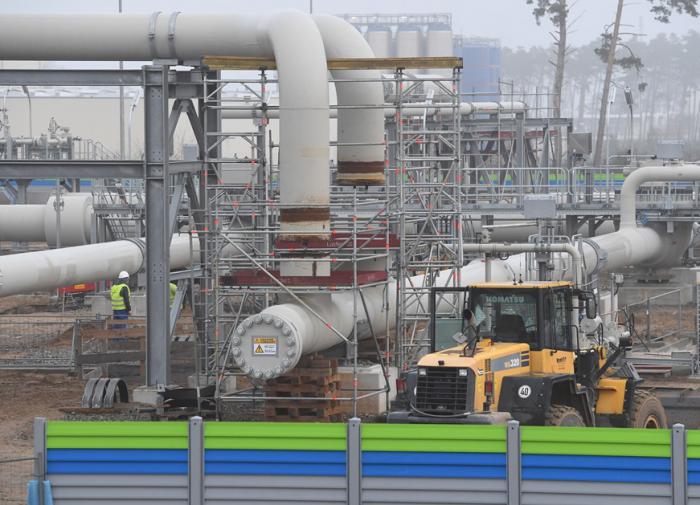Poland, like Germany, wants to become Europe's main natural gas hub, the stakes are very high, hence Warsaw's constant attacks on the Nord Stream 2 natural gas pipeline project.

The Polish Office for the Protection of Competition and Consumers (UOKiK) fined Gazprom $57 million for refusing to cooperate in the case on the legality of the procedure for creating the Nord Stream AG consortium, the official website of the agency said.
It was also said that this obligation ensues from the European norms, on which the Polish law on consumer protection and competition is based.
The Poles believe that the procedure for creating a consortium to finance the construction of the Nord Stream 2 gas pipeline was carried out without the necessary consent from the head of UOKiK. In this regard, the head of UOKiK brought charges against six companies: Russia's Gazprom, Engie Energy of Switzerland and four companies of the Netherlands: Uniper, OMV, Shell and Wintershall.
Sergei Pikin, the director of the Energy Development Fund, told Pravda.Ru that the decision was made because there was a risk of a decrease in transit through Poland, let alone political reasons.
From the point of view of the expert, Gazprom will not provide any information so that the decision on new penalties would not be based on it.
"Gazprom understood that decisions on tougher sanctions against Nord Stream-2 would be based on this information, so it did not provide this information. The regulator imposed the largest fine that can be applied if information is not provided," said Sergei Pikin.
According to him, Gazprom will try to appeal the case, but there are no prospects. The Polish regulator will try to impose new sanctions based on the information provided by other companies involved in this project.
"For the time being, this is a working aspect - one can appeal not the fine itself, but the amount of it. In any case, Gazprom will appeal anyway - this is a matter of principle," the expert said.
Big money and political weight at stake
The main reason for the fines, as Sergei Pikin pointed out, is a possibility of reducing transit via Poland.
Poland, like Germany, wants to become the main gas hub in Europe.
- Poland already collects good transit payments from the Yamal-Europe gas pipeline (the pipeline has a capacity of 33 billion cubic meters per year) and may lose them if Gazprom chooses to use the facilities of Nord Stream 2.
- Polish and Danish companies are currently building, as they claim, the Baltic Pipe gas pipeline, which is competitive with Nord Stream, to receive gas from Norwegian natural gas fields.
- In 2018, the Polish-run oil and gas company PGNiG signed an agreement on the supply of liquefied natural gas to the United States for twenty years. From 2023, its volumes will cover 81% of the country's current gas imports. Even in the event of complete refusal from purchases in Russia and Europe, the still unbuilt "Baltic Pipe" with a capacity of 10 billion cubic meters will only account for about 3 billion cubic meters.
It will be possible to avoid significant losses for PGNiG only if Warsaw persuades neighboring countries to buy expensive liquefied gas from the United States. This can be possible only in the absence of cheap natural gas from Russia.
Of course, pipeline gas is more expensive than spot gas, but everything can change overnight in the event another political crisis breaks out in Ukraine or a cold winter comes to Europe.
No comments :
Post a Comment